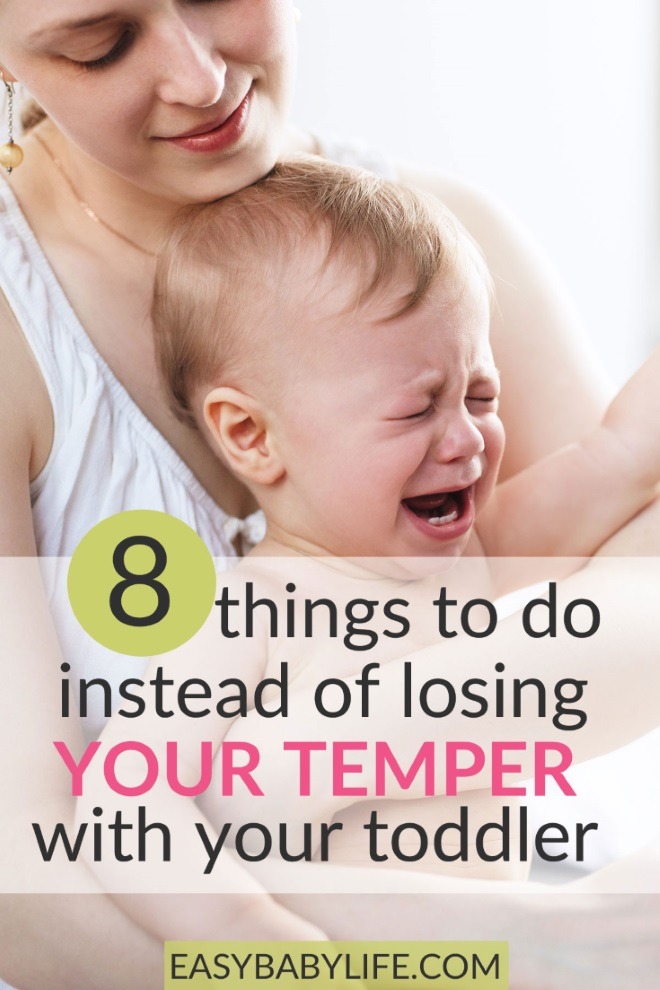 Our children can be our greatest source of joy as well as our biggest reason for frustration. We all understand that our toddlers are learning, growing, and developing and we have patience with them as they do so.
Our children can be our greatest source of joy as well as our biggest reason for frustration. We all understand that our toddlers are learning, growing, and developing and we have patience with them as they do so.
We also know that toddlers are known for their tantrums – the “terrible twos”. Not being able to manage strong emotions and learning some independence is a challenging combination for any parent. Recent research has also shown that toddlers with a speech delay are twice as likely to have frequent temper tantrums. Exhausting!
And what about those times when your toddler makes an intentional mistake, such as biting their younger sibling when they know this is bad behavior? Or when they throw a tantrum because you’re not buying them that super-delicious-sugar-cereal they want?
Before you start losing temper with your toddler (and perhaps your sanity) there are different things you can try to do with your toddler. This list is not all-inclusive, but it’s a great place to start.
8 Musts Instead of Losing Temper with Your Toddler
1. Take a Deep Breath
Tantrums will always happen when you have a toddler. And as parents, we do need to expect and prepare for them. But it’s important that we not meet their outburst with our outburst.
Give yourself a brief minute of peace in your mind by mentally preparing yourself. You can do this by doing a few deep breathing exercises to clear your mind and ground yourself mentally so you can focus on your little one.
If you can meet your angry child without losing temper with your toddler, you will teach him or her a valuable lesson for life.
2. Acknowledge Your Toddler’s Feelings
Anyone who is overwhelmed with their own feelings wants to feel heard and understood. This is true for kids as well as adults. If you can express in words and with empathy how your furious little toddler is feeling, chances are he or she will calm down much faster.
“You are really sad and mad that you can’t buy that cereal, right? They look so yummy and you really want them. “ (Hopefully, your toddler now nods – hence communicates with you instead of just screaming.)
“But, you see, they are candy. We only eat candy on Saturdays. We can go and buy them on Saturday if you want, but not today (that’s setting the limit – and doing this while moving away from the sugar cereal. )”
If this makes your toddler even more mad – just continue to acknowledge their feelings:
“It makes you so sad to not have this cereal right now, I understand that. “
By focusing on connecting with your toddler, you achieve two things:
- You help them feel less overwhelmed and this helps them calm down
- You help yourself to feel in control and this helps YOU calm down.
3. Put yourself and your child in a safe place
Tantrums can feel make us as parents very stressed, especially when they occur in public or even just in front of friends or relatives – we start worrying about how others think of us as parents (we suck) and what they think about our children (they suck too).
If the tantrum makes you start focusing on the views of others rather than your relationship with your child, move the two of you away from the situation.
Lift your toddler up calmly and leave the store. You can pick up the groceries later. Go to a quiet part of the park, airplane, or house. Don’t do this to punish your child, but to make sure you can focus on your interaction rather than the views of others.
Tell your toddler:
“You are so very sad and angry that you couldn’t have the cereal. Now we’ll go back to the car so you can calm down in a peaceful place.” We’ll do the shopping later when you are happy again.
4. Time-Outs are OK – for you!
If you feel that the situation is getting on your nerves to the point that you are close to losing temper with your toddler and regressing to a 2-year-old too, it fine to put yourself in time out and step away for a moment.
It’s definitely better to remove yourself from the situation (as long as your child is safe and won’t hurt themselves) than to start losing temper with your toddler and yell or do something you’re going to regret later.
However, do not make you leave a way to punish your child. Again, acknowledge your child’s feelings and just say calmly that you are going to the other room for a few minutes.
Then just go out and breathe and calm down for a little while.
5. Ask for Help
If your significant other is available, ask them for help. You can take turns staying with your angry little child if it gets too frustrating for one of you.
If you’re alone with your children, then think about those you can call and talk to over the phone or even ask to come over.
The other person can also help taking care of worried or sad or just (for the moment) neglected siblings. It can be quite stressful for siblings – both older and younger – when a tantrum goes on.
6. Wait them out
Sometimes, your toddler might be so out of control angry that you just can’t get through to him or her. At this point, it is very easy to become desperate as a parent and do desperate things, like yelling or shaking your child.
From my experience, when a child is this furious, the best thing to do is simply to wait them out.
It is possible that such behavior by you will frighten your child enough to make the tantrum stop, but losing temper with your toddler in this way is a very short-term solution.
What we want is for them to learn how to cope with negative feelings, not to scare them! And by losing your own temper, you are certainly not setting any good examples!
From my experience, when a child is this furious, the best thing to do is simply to wait them out.
Sit next to your child, stop them from hitting you or themselves, make sure they don’t destroy anything, and simply be there very calm. Tell them now and then that you can see that they are very sad and angry and that you are there right next to them. Offer a hug occasionally. Don’t make a big fuss about it, don’t yell, don’t curse.
I know a mom who even brought a book and just sat next to her toddler to read it (to help herself stay calm).
This way you are teaching your child that their feelings are not frightening, that you are always there for them to protect them, but yelling and screaming is not an efficient way to get what they want.
7. Reconnect
Once your toddler’s tantrum has stopped, take some time to reconnect. Remember that these feelings are very exhausting and overwhelming for your child – he or she has not been furious by choice.
Offer hugs and lots of love to your now calm toddler. This is not the time to discuss his or her behavior to correct it, but only to make your little one feel loved.
What you can do, is to describe the situation:
“We went to the store to shop and had so much fun. You helped me pick all the groceries. Then you got so sad and angry that you couldn’t buy the candy cereal. You cried and screamed and then we went to the car to calm down. You cried and then we hugged. Now you feel better again. “
By doing this, you help your toddler see the whole situation, without you putting blame on him or her.
8. Recognize and Reward Good Behavior
To work long-term with your toddler’s behavior, remember to always be specific with your toddler’s good behavior and reward them with your words, positive reactions, and physical touches, such as hugs and kisses. When you recognize specific good behavior, you’re setting the standard for them to follow.
You can say something like, “thank you for being so patient as we ran to the grocery store. I know it’s hard when we are in a hurry and there were a few struggles, but I appreciate you being my special helper.”
All these tips aim to help you correct your toddler’s negative behaviors in a loving and calm way. Doing this instead of losing temper with your toddler will help your child learn how to cope with negative feelings rather than frighten the child to shut up.
You can learn more powerful parenting habits to foster positive, cooperative kids here. It is really nice to have tools to avoid losing temper with a toddler AND helping them in an efficient way!
What practical tips do you have with navigating a toddler’s tantrum? I’d love to hear what you do instead of losing temper with your toddler, so please comment below! You’ll help a fellow mom too! :-)

Paula Dennholt founded Easy Baby Life in 2006 and has been a passionate parenting and pregnancy writer since then. Her parenting approach and writing are based on studies in cognitive-behavioral models and therapy for children and her experience as a mother and stepmother. Life as a parent has convinced her of how crucial it is to put relationships before rules. She strongly believes in positive parenting and a science-based approach.
Paula cooperates with a team of pediatricians who assist in reviewing and writing articles.






